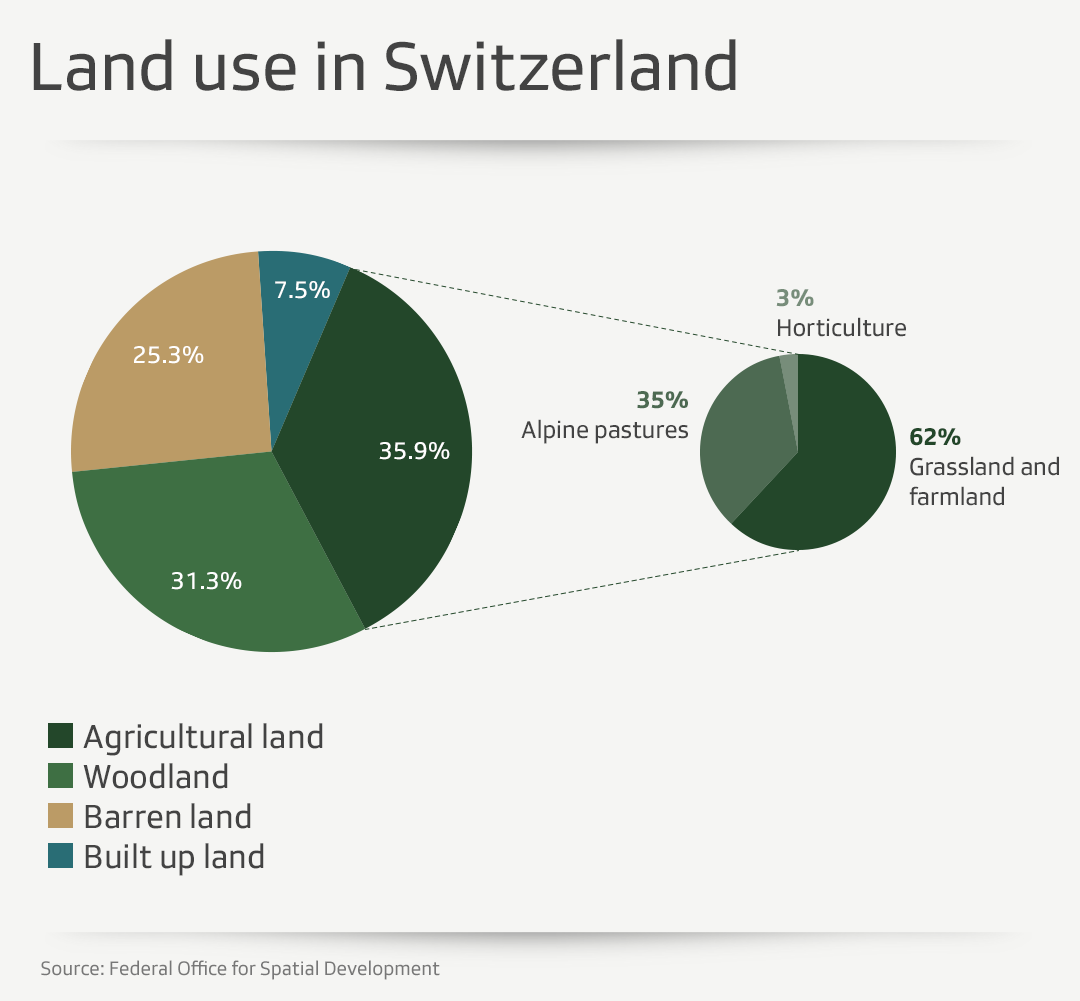
Why countries like Switzerland are being urged to eat less meat

The latest UN climate report recommends sustainable food habits to preserve the land and limit climate change. Switzerland is no exception.
Efforts to reduce emissions from transport, energy and manufacturing will not be enough, says the new Intergovernmental Panel on Climate Change (IPCC) reportExternal link presented on Thursday in Geneva. It focuses on the agricultural sector and soil protection. Any scenario to limit global warming to less than 2°C by 2100 “requires land-related mitigation and land-use change,” authors estimate.
Globally, more than 70% of the land surface is used to satisfy people’s needs. Human land use for agriculture accounts for up to about a third of greenhouse gas emissions, including transport and preparation. It also accounts for nearly half of the methane released. This activity is responsible for the degradation of 25% of the land surface.
Switzerland should also be concerned by the problem. Agriculture accounts for the largest share (35.9%) of human land use.

Less meat on the plate
The 1200-page summary of the report also shows that current meat consumption and estimated food losses and waste (estimated at 25 to 30%) will require more land if eating habits do not change. On the other hand, seeds, fruits, vegetables and sustainable animal feed are responsible for low greenhouse gas emissions.
The problem is that since 1961, per capita meat production has more than doubled. Although meat production remains low in poor countries, it has reached record levels in rich countries, at 100 kg per year per capita. The increase in consumption is also significant in emerging economies, most notably China.
As a rich country, Switzerland also has a fairly high level of consumption. Last year, Swiss residents consumed an average of 52.06 kg of meat, as well as 8.72 kg of fish and shellfish.
According to the IPCC, more sustainable food habits could free up millions of square kilometres of land per year, resulting in a reduction of up to 8 gigatonnes of equivalent of CO2 by 2050.
“The IPCC does not recommend people’s diets…” said group chair Hoesung Lee. However, one of the experts adds that a reduction in meat consumption is “a good thing”, without quantifying the effort to be made.
For its part, the NGO Greenpeace goes so far as to estimate that meat consumption should by drop by 50% worldwide and even by 70 to 90% in Switzerland. The environmental lobby group would like the Switzerland’s governing Federal Council to launch a food policy that takes these challenges into account.

More
How climate change affects Switzerland

In compliance with the JTI standards
More: SWI swissinfo.ch certified by the Journalism Trust Initiative




























You can find an overview of ongoing debates with our journalists here . Please join us!
If you want to start a conversation about a topic raised in this article or want to report factual errors, email us at english@swissinfo.ch.